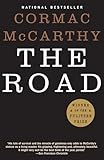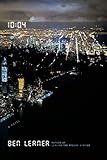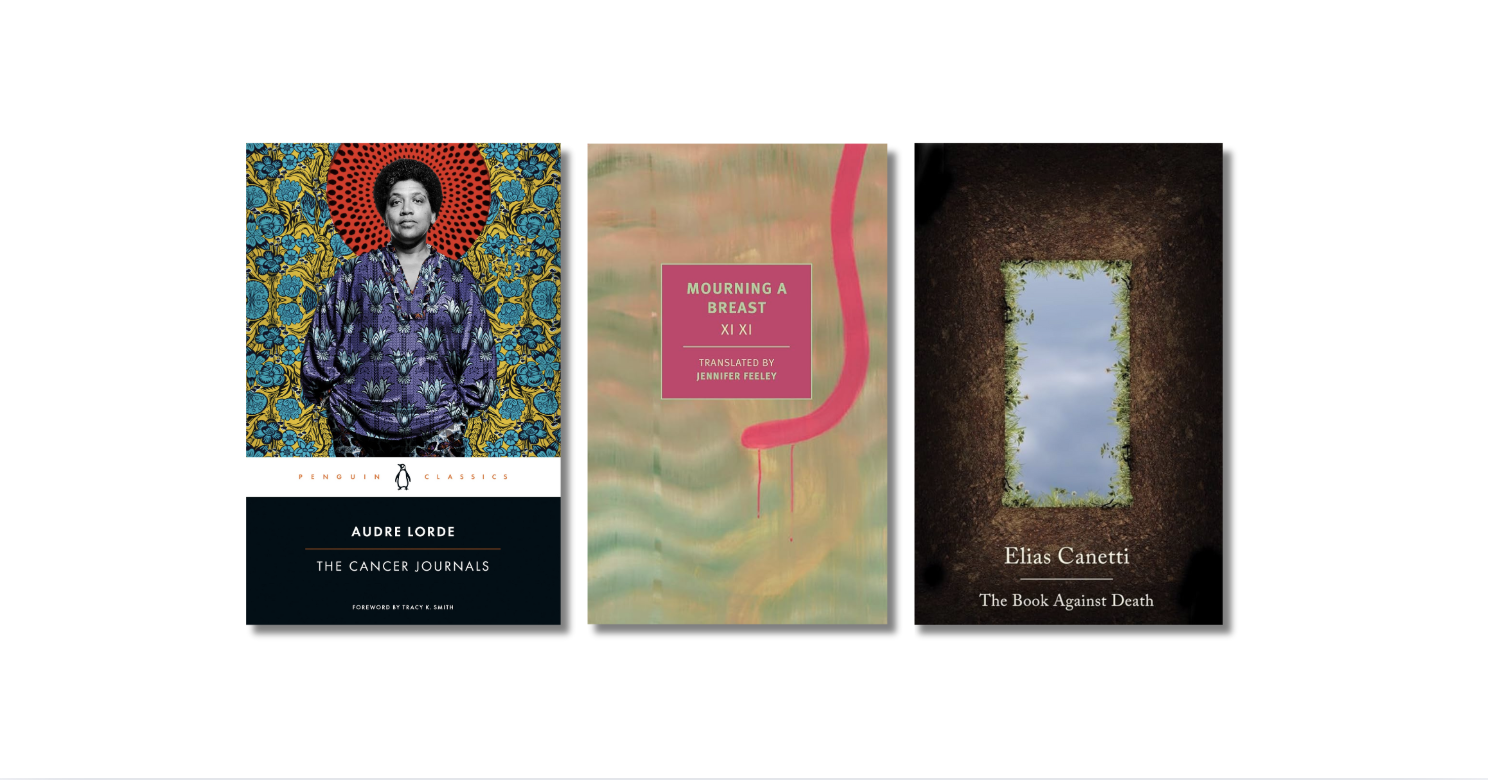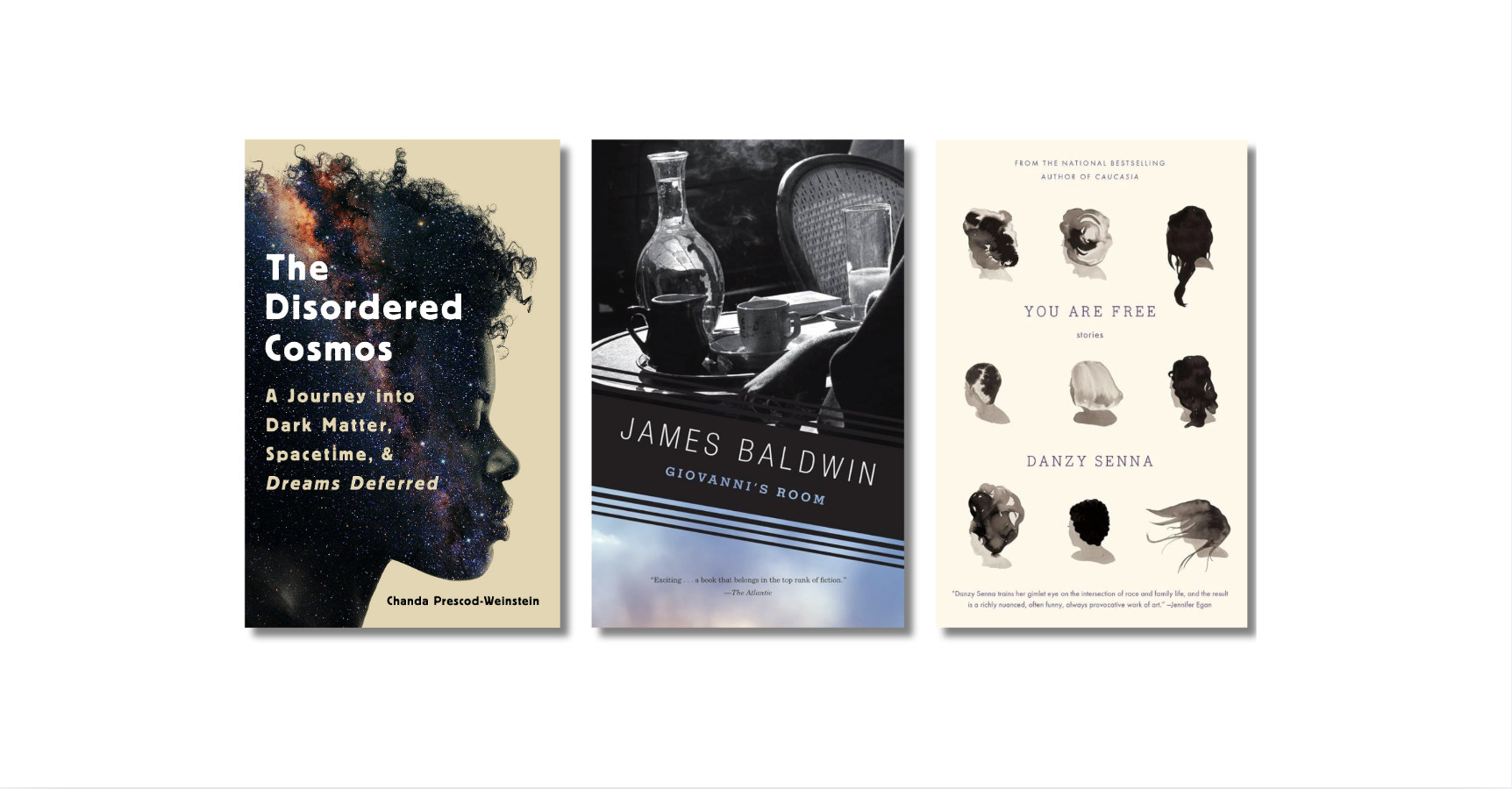
Earlier in the summer, I was on a plane that took off from D.C. bound for California, and I read Lauren Groff’s latest novel, Fates and Furies, during the five hours of flight. Not all of it — I’m a slow reader. But also it was so good I wanted to save the end for somewhere I’d be alone. I did pause for a bit to write in my journal to gush about her. “Lauren Groff — ” I started, cutting myself off. “When I read her, I am mesmerized. She goes so far into the worlds she creates. How? It must be so difficult and demanding. Or maybe not. Maybe it just comes naturally to her.”
I got the chance to talk with her on the phone a few weeks later, and ask her how she does it. It turns out, it is demanding — but I think it also comes quite naturally.
The Millions: Fates and Furies is about the marriage between Lotto, a playwright, and his gorgeous and mysterious wife, Mathilde. The ambition and love between the two of them is fascinating and all consuming — both for the friends who envy them throughout the novel and for the reader immersed in their lives and secrets. What drove you to write about a marriage?
 Lauren Groff: I tend to write two projects at once because otherwise I feel as though I’m putting all my hope and work into something that will probably fail. Focusing on one novel for years and years at a time can feel scary. So I wrote Fates and Furies while I was writing my previous novel, Arcadia, and when I got tired of working on one book I would go to the other one. Arcadia is about a utopian community, and it struck me that in fact the smallest, deepest community you can have is within an intimate partnership. In a relationship, you wake up every morning committed to doing your best, every day you fail, but the next morning you wake up and try again.
Lauren Groff: I tend to write two projects at once because otherwise I feel as though I’m putting all my hope and work into something that will probably fail. Focusing on one novel for years and years at a time can feel scary. So I wrote Fates and Furies while I was writing my previous novel, Arcadia, and when I got tired of working on one book I would go to the other one. Arcadia is about a utopian community, and it struck me that in fact the smallest, deepest community you can have is within an intimate partnership. In a relationship, you wake up every morning committed to doing your best, every day you fail, but the next morning you wake up and try again.
TM: How did you do the work of writing Arcadia and Fates and Furies at the same time?
LG: I had butcher paper on the walls of my office at the time I was working on both of the books, and I would write Lotto’s point of view on one big page and then go over and immediately write Mathilde’s on another. I went back and forth like this for a few years, until I felt like I had built up the story enough to know it inside and out.
TM: Toward the end of part one of Fates and Furies, Lotto articulates this thought: “Paradox of marriage: you can never know someone entirely; you do know someone entirely.” Do you agree with his assessment?
LG: I would say that we all have quiet subterranean rebellions going on at all times. I adore my husband very, very much but not a day goes by that I don’t have thoughts that he’d be horrified to know about.
I would say that there have to be things that we keep secret. There’s no such thing as full disclosure. Because if we didn’t have secrets, we would have no internal life at all, which would make for a very sad existence. So I think it’s a beautiful and creative and magical aspect of being human to have these constant internal eruptions. I think those parts of ourselves that exist in a state of pure and selfish personality — the parts that are not shared — are actually very beautiful.
TM: I loved your most recent story in The New Yorker, “Ghosts and Empties” — which also hits the same chord in regards to inner lives. In the “This Week in Fiction” interview about that story, you commented that there’s a part of you that has lately been resisting the cause-and-effect impulse in story writing. How did you mature into this next phase of writing?
LG: I don’t know if it’s maturing or going backwards! I think as you mature as a writer, you go after what feels most honest and real to you as a human being at that particular moment in time. In the beginning, maybe you train yourself to write stories that are more like stories –something happens, and then other things that happen as a result, you write in terms of cause-and-effect. I do think that life can be perceived as a series of reactions, to an extent. But the more I think about my life as it is at the moment, everything exists in a swirl of confusion. So I was trying to write something that feels more true to my current mode of perception when I wrote “Ghosts and Empties.”
I’ve always been interested in the cusp between fiction and autobiography. My senior thesis in college was about that vague space between the two. Also, when I wrote “Ghosts and Empties,” I was thinking about the amazing William Maxwell story, “The Thistles in Sweden,” which is one of my all time favorites. It is a perfect story. I think that’s something you do as a writer — write in conversation with a work that you really, really love.
TM: Your books and stories are all quite different from each other — I keep trying to find a common thread, and I’m not sure there is one solidly obvious one. One thing I keep coming back to is the concept of home in your work, and how many of your characters — from Lotto in Fates and Furies to Bit in Arcadia, or even the narrator of the short story “Above and Below” — are so grounded in the selves that come from their homes, even as they are running, or exiled, from home. Is this something that you think about consciously when you write, or something you see as playing a part in your work?
LG: That’s a beautiful way of putting it. I think I am haunted by community. Particularly the pressures of community versus freedom. I think a lot of this comes from being such a homebody. Home is where I’m happiest. Homebodies can survive in the world, but we may not like it very much. I think that’s an artist’s reaction to the world in general: we have to make these safe spaces in order to create things. In truth, I would be very, very bored if I kept doing the same thing over and over again in my work, and so I’m always trying something new and different — and failing, mostly. But still, no matter what we do when we think we’re trying to be completely experimental in terms of subject matter, in the end, we are whom we are. And so we always end up circling back to the things that are important to us.
TM: Do your drafts come out in a trance or is it persistence that’s seeing you through to the end?
LG: They don’t come in a trance, though sometimes a short story will come out in a beautiful burst. But most of the time when I write, I sit there day after day, and it’s work, you know? It’s like training for a marathon. You just kind of do it. And most of it is just a mess, and a disaster. But then you just do it again, and something clicks in, and you think, oh, okay, so I have to rewrite everything I’ve been doing.
TM: I’ve heard you write many, many drafts, and the first drafts are written by hand.
LG: I write almost everything by hand. It works out well for me because I can’t read my own handwriting, and so I don’t go back to read the drafts I’ve just written. I do a draft, and by the time I’ve finished it, I understand the foundational problems that are ruining the book. And then I just start over again. That way I’m building my idea of the world of the story, I’m building the characters. The things that I remember when I’m finished with one draft are the living details, and the living details are the ones that are meant to be in the story, that mean something.
My drafting system is insane, and it’s very wasteful, and I’m frustrated for years and years at a time, but it ends up working out for me, because otherwise I would end up polishing foundationally problematic work. My impulse always is to spend all my time playing with words — that’s the most joyous part for me.
TM: Your characters are exceptionally vivid. I’m thinking in particular of Handy in Arcadia, with his grey eyetooth. And in Fates and Furies, both Lotto and Mathilde are carefully and artfully drawn as humans. Can you talk a little bit about how you create the physical details of your characters?
LG: I don’t really know people until I can see them; it means a lot to me to be able to envision the world I’m writing about. I just need to know as much as possible, and the physicality of the characters is part of that. So one of the things that I do is to find an image that corresponds to a character and put it up on my wall as I’m writing. Or I think about people that I know, and let them speak to me. It’s all part of building the world of the novel.
TM: Lotto is a person who makes things — he’s first an actor, but then a playwright, and you’ve written parts of his plays and included them as excerpts or scenes. What was it like to write as another writer — and a different kind of writer?
LG: Research can obsess me, and in this case, I became obsessed by playwrights and their plays. I started reading a lot of [Henrik] Ibsen, [Anton] Chekhov, Eugene O’Neill, and then I read their biographies. Playwrights possibly have a different brain than the rest of us. There’s something to be said about being able to edit out the external, visual items in a story and just concentrate on the dialogue and the character. As I wrote Fates and Furies I was trying to figure out what it would be like to be a playwright. I’ve always loved plays as well as operas, in particular, because I find them so beautifully melodramatic and funny and ultimately satisfying. They transport you in a way that almost nothing else can. Though actually, now that I think of it, novels might be the closest literature has to operas. They’re both so big and populous and they both can incorporate so many different musical or tonal modes.
TM: In an interview with The Rumpus, you discussed climate change, and said the world was “clearly barreling toward disaster.” You’ve also said that Arcadia came from thinking about utopias — and that you wrote it as a reaction to the many and various dystopian scenarios that one might imagine. What role does climate change play in your writing, and what, in your heart of hearts, do you think is going to happen?
LG: I don’t know what’s going to happen, of course, but I do wake up in the middle of the night imagining terrible things. It all has begun to feel especially urgent now that I have children. They did not ask for any of this, and they haven’t done anything wrong, but they will be the ones to struggle through it. I don’t know if anyone could be prepared for what will happen. All I know is that fiction and poetry and literature that doesn’t even subtly address climate change feels as if it is missing something very fundamental about what it means to be alive right now.
What I mean by this is that the novel, through history, it is a text that traces an individual through space and time. Of course wars have always occurred, and there’s always been millenarianism; there’s always been some kind of threat, either real or perceived to the human project. But it’s never been so globally certain as it is now that something very bad is going to happen because of what we have done to the environment; it is all happening right now. And so a perfect book about someone’s love story that, 50 years ago, might have felt incredibly powerful and beautiful has stopped speaking to me at all these days. Escapism is not where I need to be right now if we’re talking about serious art. We have a moral duty and responsibility to speak to the greatest urgencies of our time. Why else would we be writing? Why should we write fiction that doesn’t critique the now? That doesn’t think deeply about the mistakes that we’ve made, the ones that have brought us to where we are?
 On the other hand, I have developed an equal allergy to apocalyptic fiction, which I know is going to be contentious. I just think a lot of it is very passive. Some of it is really beautiful — I’m thinking about Margaret Atwood’s brilliant novels, or about The Road by Cormac McCarthy. But some apocalyptic fiction takes for granted the end of things, it’s not interested in pushing back against the now. It seems like a horrible lie, sometimes, to read how, no matter how awful it gets on Earth, the human spirit will prevail! It provides a sort of false catharsis: we read these apocalyptic books in the comfort of our homes with a mug of hot tea beside us; we’re wrapped in our thousand thread-count sheets, and when we finish these books, we feel like we fought some sort of war, that we’ve waged some sort of battle against evil; we’re self-satisfied. But we haven’t fought anything; we haven’t done anything. We’ve read a book. I would never say that someone’s choice to write about any particular topic is wrong, or that someone else’s choice to read or write anything is not legitimate. Personally, though, I’d rather look at climate change more subtly, let it slip in gently, not have it cudgel me over the head.
On the other hand, I have developed an equal allergy to apocalyptic fiction, which I know is going to be contentious. I just think a lot of it is very passive. Some of it is really beautiful — I’m thinking about Margaret Atwood’s brilliant novels, or about The Road by Cormac McCarthy. But some apocalyptic fiction takes for granted the end of things, it’s not interested in pushing back against the now. It seems like a horrible lie, sometimes, to read how, no matter how awful it gets on Earth, the human spirit will prevail! It provides a sort of false catharsis: we read these apocalyptic books in the comfort of our homes with a mug of hot tea beside us; we’re wrapped in our thousand thread-count sheets, and when we finish these books, we feel like we fought some sort of war, that we’ve waged some sort of battle against evil; we’re self-satisfied. But we haven’t fought anything; we haven’t done anything. We’ve read a book. I would never say that someone’s choice to write about any particular topic is wrong, or that someone else’s choice to read or write anything is not legitimate. Personally, though, I’d rather look at climate change more subtly, let it slip in gently, not have it cudgel me over the head.
TM: What do you read that does satisfy this criteria?

 LG: I thought that Kate Walbert’s The Sunken Cathedral did it really beautifully. I would argue that Ben Lerner’s 10:04 did it really well. And then also a lot of poetry does it gorgeously. Maybe it’s easier in poetry because the space is smaller and poets are more radical formalists, I don’t know. Jynne Martin — who’s also my publicist, full disclosure — is amazing, and she just had a book come out, and part of it is about climate change, and is done so beautifully.
LG: I thought that Kate Walbert’s The Sunken Cathedral did it really beautifully. I would argue that Ben Lerner’s 10:04 did it really well. And then also a lot of poetry does it gorgeously. Maybe it’s easier in poetry because the space is smaller and poets are more radical formalists, I don’t know. Jynne Martin — who’s also my publicist, full disclosure — is amazing, and she just had a book come out, and part of it is about climate change, and is done so beautifully.
TM: When did you know you were a writer?
LG: I was a writer long before I wrote anything interesting. I went into college thinking I was a poet. But I’m a terrible poet! And yet I love it, in the same way that I’m a terrible singer, and yet I love to sing, and I’m a really bad dancer, but I love to dance. There are some things we do with glee because we’re liberated by being absolutely terrible at them. That said, I was quickly disabused of the idea that I was a poet, and I started writing fiction and I spent three years out of college trying to find a way to live and write at the same time. I wrote a couple of atrocious novels, and then I went to get my graduate degree at University of Wisconsin-Madison, because I was so tired of trying to do it alone. At that time I was also writing these Lorrie Moore knock-off stories, which was super fun until the moment I got into Lorrie Moore’s class, and I debated giving her one of these awful stories that was similar to but not at all, really, like hers. But she’s amazing — she’s warm and gentle and kind — and not at all intimidating.
TM: How has living in Florida influenced your work?
LG: I feel a deep ambivalence about the state of Florida. Living here has been fruitful for me, because for a large chunk of the year — the part of the year that I love the most, the summer — I barely go outside at all. I can’t handle the heat. So I spend a lot of the summer inside in the dark, with the lights off. I have the summer and winter reversed. I think it’s good to feel like an outsider when you’re a writer.
I do find the natural beauty here extraordinary and moving, even though nature here wants to kill you. We have this banana spider living in our backyard right now that’s about the size of my hand. It’s so beautiful to watch. I go out there with my coffee and sit and watch the banana spider in the quiet and heat. There’s part of me that would love to live in Brooklyn with everybody else, but I know that I would be forced to be more social than I am, and my work gets done because I’m not as social as I would be otherwise. I have no readings to go to here, and I don’t teach, so I have a lot of time to dream, and to mess up.








